In Brief
Conservation Value:
Seahorses, seagrass beds, coral reefs and a wealth of marine biodiversity in Cambodia need urgent conservation action and this project is showing the way. In April 2019, the Kep Archipelago was declared a Hope Spot by the international nonprofit Mission Blue in recognition of the impact that the conservation efforts of Marine Conservation Cambodia has had in preserving the area’s unique seagrass meadows and sensitive marine species.
Threats:
Cambodian marine ecosystems and local fishing communities are being destroyed by illegal and destructive fishing practices of large-scale bottom trawling and electric fishing. Protection and enforcement can turn this around. ICFC partner Marine Conservation Cambodia is building on past success in curtailing these practices, allowing marine ecosystems to recover and improving livelihoods for small-scale family fishers.
Actions & Results:
INNOVATION LEADING TO MAJOR SUCCESS: Since ICFC began partnering with MCC in 2016, MCC developed and refined a low-cost anti-trawling device that has been transformative. MCC's conservation and anti-trawling structures (CANTS) are made from 1.5-metre-long concrete blocks that are assembled into a cube or hexagon shaped tower on the seabed by 3 divers in about 30 minutes. By entangling trawl nets, CANTS are an effective deterrent to illegal highly destructive bottom trawling.
As of March 2024, the MCC team have deployed 362 in Cambodian waters, notably around the Kep marine fisheries management area (MFMA). In combination with increased enforcement, CANTS have nearly eliminated illegal trawling within the reserve. The success of CANTS work has inspired similar action in neighboring Kampot province where MCC worked with Wild Earth Allies and local fishing communities, and as far away as the Gulf of California in Mexico where similar blocks are being deployed to save the world’s most endangered sea mammal (see Vaquita project).
ICFC is proud to report that MCC has been awarded funding from the Asian Development Bank to expand the use of CANTS at marine reserves along the entire coast of Cambodia over a five-year period beginning in 2024. This work is now underway in 2025.
MONITORING: As part of ongoing biological monitoring, MCC mapping of seagrass meadows in Kep and Kampot has documented the recovery of the marine ecosystem. In Kep province, seagrass surveys covering 35,820 had recorded (as of mid-2023). 6,399 ha of seagrass, 1,202 ha of seaweed, 440 ha of bivalve beds and 65 ha of coral reefs. Kep seagrass meadow proved to be the largest seagrass bed of Cambodia and one of the most diverse with 10 species of seagrass recorded. Monitoring includes invertebrates and fish, including endangered seahorses.
The MCC Marine Mammal research team were thrilled to witness the return of emblematic species in Kep and Kampot waters: Irrawaddy dolphin (EN), the Indo-Pacific humpback dolphin (aka pink dolphin; VU) and the dugong (VU). These species can drown in trawling nets and their population status has improved due to CANTS and enforcement measures.
Cambodia’s marine life is coming back!
"Paul has enormous courage in tackling real problems with minimal resources. I hope he can find a way to stay effective while staying safe. If I had a Paul in every country where we work, my life would be much easier." -- Amanda Vincent, PhD, Director, Project Seahorse; Professor, Institute for the Oceans and Fisheries (UBC); Chair , IUCN SSC Seahorse, Pipefish and Stickleback Specialist Group
Click here for MCC video showing our project in action!
Goal:
Bring about the recovery of severely damaged marine ecosystems, including seagrass beds, coral reefs and fish communities
Support this projectLocation:
Province of Kep, Cambodia
Size of Area Involved:
16,900 hectares (169 km2) in Kep province but wider action across Cambodia
Project Field Partner:
Our Investment to Date:
Cost to ICFC (2016-2024): CA$1,424,116
2025 budget (ICFC portion): US$129,840
Gallery
Click to enlarge an image
In More Depth...
Our partner Marine Conservation Cambodia (MCC) is a non-profit organization that advances marine conservation and community livelihoods in collaboration with the Cambodian Fisheries Administration. Led by founder Paul Ferber, MCC is making a striking difference on a modest budget. Read about Paul...
- Current Sea Current Sea Film LLC, 2020
- Cambodia volunteers step up battle against illegal fishing. Nikkei Asia 2018-06-02.
- Building a refuge where trawlers now ravage Cambodia’s marine life Mongabay 2017-12-14
- Authorities Investigate Whale Shark’s Capture. The Cambodia Daily 2017-02-13
- British conservationist fights to save seahorses in Cambodia. Phys.org 2017-01-06.
- The mystery of the Kingdom’s dwindling catch. The Phnom Penh Post 2016-01-16
- New fisheries office inaugurated in Kep The Phnom Penh Post 2015-12-04
- Illegal Fishing Destroying Kep’s Ocean Ecosystem The Cambodia Daily 2015-10-24
- Tracking seahorse ‘tattoos’. The Phnom Penh Post 2015-07-17
- Former British Policeman is battling to save Cambodia’s coastline. The Telegraph 2015-06-01
- The Horrors of Fishing With Dynamite. The New York Times 2015-02-04.
Since 2008, MCC has been working in collaboration with the Royal Government of Cambodia Fisheries Administration, local authorities and local communities. (Community awareness campaigns have brought support from all but two fishing communities.)
Cambodian marine ecosystems and local fishing communities are being rapidly destroyed by illegal fishing practices of dynamite, cyanide, electric fishing, and large scale bottom trawling (dragging). The perpetrators are outsiders: Vietnamese or large commercial boats. This is unsustainable fishing at its worst. MCC foresaw that the local fishing industry and livelihoods of small scale fishers would likely vanish within the next decade. It became MCC's goal to achieve a sustainable and responsible way of fishing that benefits local communities and marine ecosystems.
MCC's marine monitoring, research and socioeconomic work formed a basis for the creation of the first Marine Fisheries Management Area in Preah Sihanouk Province. The organization is now focused on the small coastal province of Kep. With help from international volunteers, it is undertaking marine surveys around Kep's 13 islands to monitor the coral reefs, seagrass beds and seahorse populations, thereby assisting the Provincial Authorities with the development of Fisheries Management areas — Cambodia's equivalent to Marine Protected Areas.
The marine protected area created around Koh Seh and in Kep province is already seeing the return of many species that had disappeared, reefs are regrowing in a healthy manner, seagrass regrowing and offering important shelter to marine organisms, and seahorses beginning a slow comeback. These are the results of establishing a protected area and doing regular patrols.
For the operation concerned with this project, MCC has been granted authorization to patrol a wider area (all of Kep's waters). Without patrols, these fragile ecosystems, left vulnerable to further destruction exacerbated by the current algae bloom, would almost totally collapse.
|
|
For more information on seahorses and their conservation see Project Seahorse.
Night patrols by field partner MCC, along with collaboration with the Cambodian Fisheries Administration, have increased enforcement. In the project's first three months 13 illegal fishers were detained, 5 boats were impounded and there were numerous confiscations of gear. A speedy judicial system resulted in the operators of five boats going to court, all of whom received jail terms of 1-2 years. This demonstration of the effectiveness of patrols has spurred greater action by the government fisheries administration to do patrols of their own.
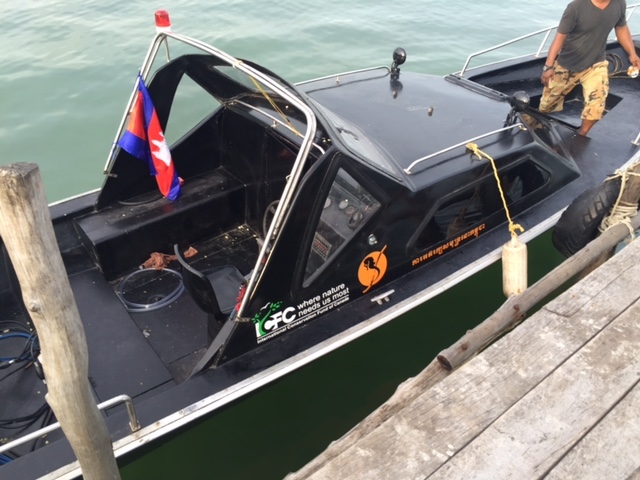
Anti-trawling devices, which MCC has begun manufacturing (using concrete), are an additional strong deterrent to illegal fishing. Bottom trawling gear gets caught up in them and destroyed. In addition, the devices serve as a substrate for many marine organisms including oysters and mussels, thereby boosting opportunities for local fishers. Depending on their size, anti-trawling devices cost just $55 to $140 to make.
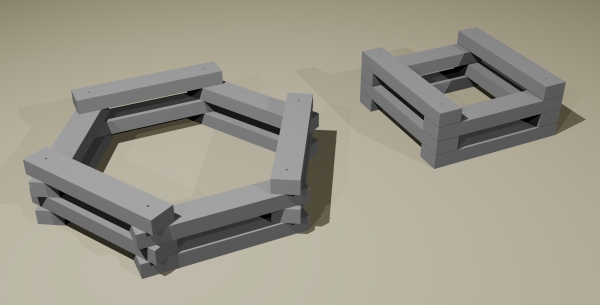
MCC has created a small marine protected area that demonstrates that with protection, seagrass beds, coral reefs and fish communities can recover, providing benefits to biodiversity and enabling sustainable fishing by small-scale family fishers. To expand on this success, MCC is working on a proposal for a marine fisheries management area (aka marine protected area) and a proposal to restore oyster and mussel beds.
International Conservation Fund of Canada Copyright © 2009-2025
Registered Canadian charity # 85247 8189 RR0001


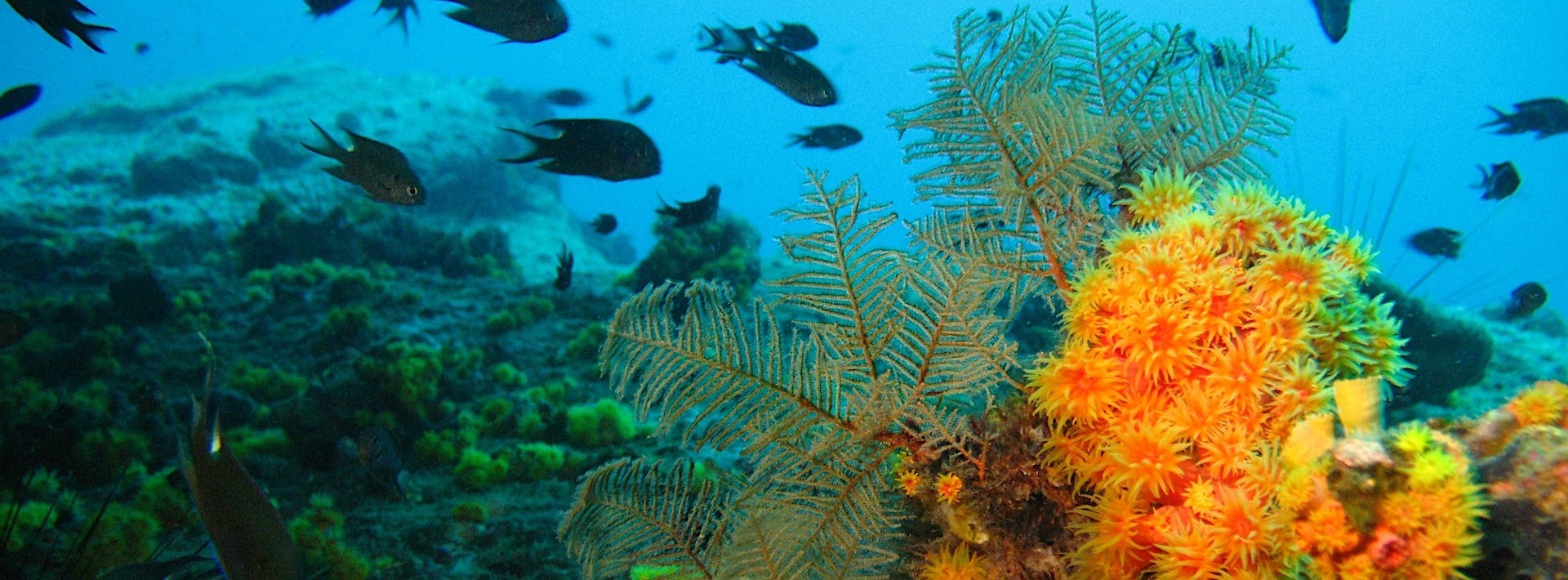
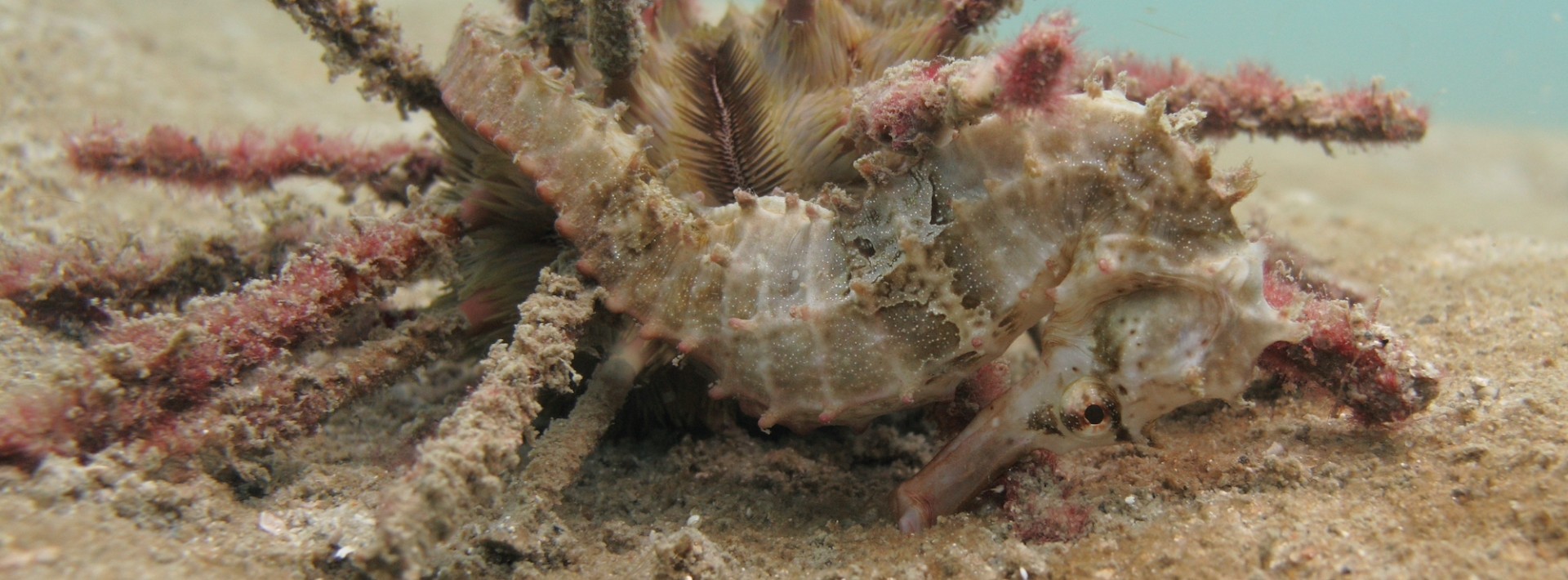


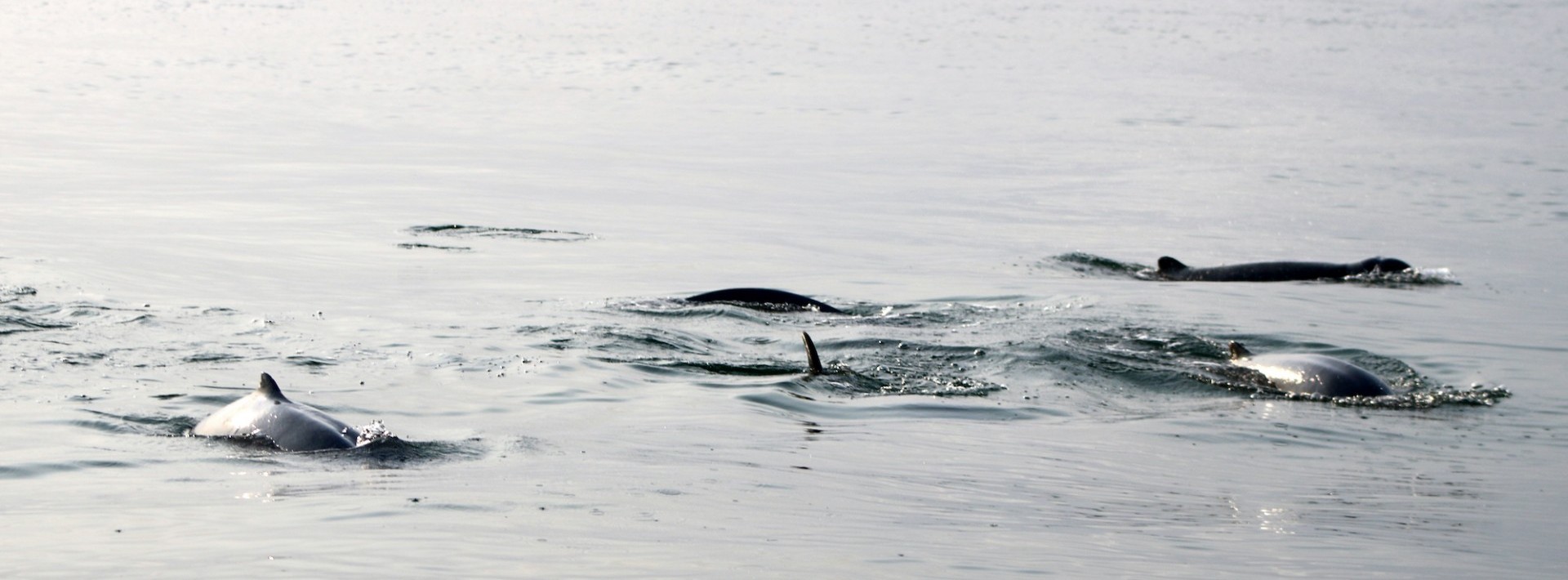

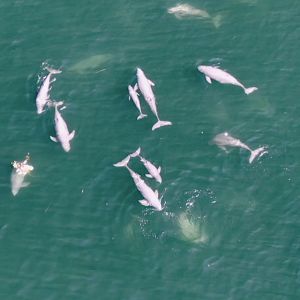


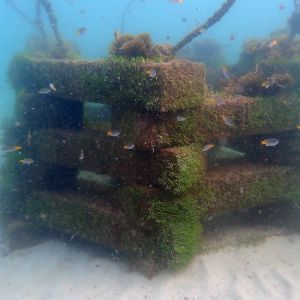
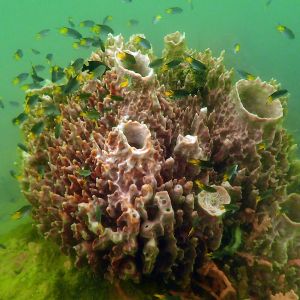
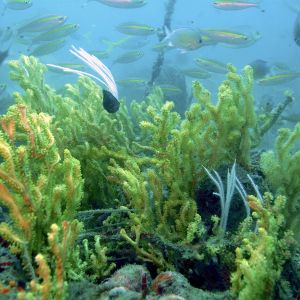
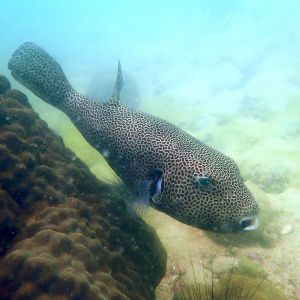
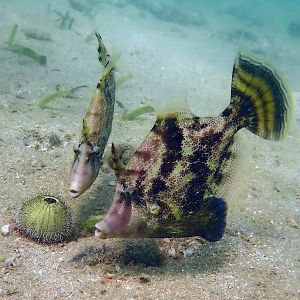
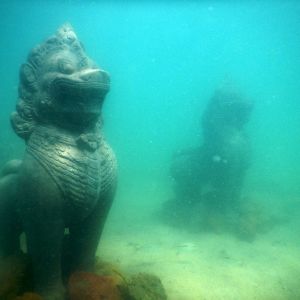
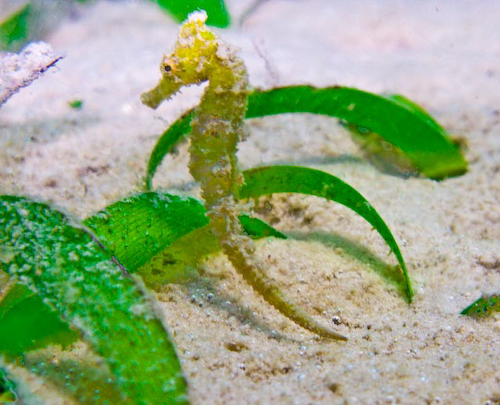 The project area is important for seahorses. © MCC
The project area is important for seahorses. © MCC